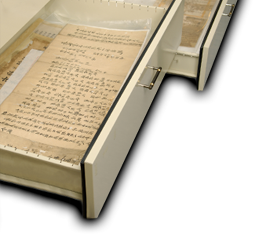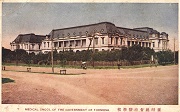|
The Du Family had immigrated from Tongan County, Fujian Province, and moved to Dajia area over three generations. The Du Family had used to farm for living. Du Wu-sheng, Du Xiang-guo’s grandfather, became local celebrity with accumulation of land capital. Du Qing (1869-1937), Du Xiang-guo’s father, was famous for developing the Dajia hats-and-mats industry. He invited local capitalists to establish the HorThai company involved in improvement of hats and mats, and successfully expanded their overseas markets, boosting the rise of hat-and-mat manufacturing industry. Du Xiang-guo (1893-1947), also known as Du Ci, with pen names Jiaxi, Jiaxi Master, Jiaxi Weihang, Du Xiang-gu and Jiaxi Du Xiang-gu, was born in Dajia Town of Taichung County. Graduated from the Dajia Elementary School and the Taiwan Governor-General’s National Language school, he used to teach in the Dajia Elementary School, then followed his father footsteps to become a businessman in 1913 and serve as manager of Taiwan Securities Co., Ltd, president of Dajia Chamber of commerce, general manager of Penglai Paper Co., Ltd., supervisory manager of Zhongnan Industrial Co., Ltd., and executive officer of Dajia Credit Union. He also succeeded his father as the administrator of the Jenn Lann Temple after his father passed away. Du Xiang-guo cooperated with Chen Huang, Wang Zhui, Chen Xin, Huang Qing-bo, and Guo Wu-ji to organize the "Dajia New Society" in 1926, which was a peripheral organization of the Cultural Association. The Dajia branch of the Taiwan People's Party had been set up in 1927, and Du Xiang-guo was elected to be one committee member of the Branch. In the following year (1928), he was listed in the Economy Committee of the Taiwan People's Party and chosen to be the backbone. As for literary activities, Du Xiang-guo used to be the vice-president of the “Poetry Daily ", but also to work with Zhuang Long, Xu Tian-kui, Wang Qing-shui, Chen Yong, Guo Cai-Feng, Chen Zao-fen, and Chen Jia-yu to found the "Heng Society" , which was the earliest poetry society in Dajia Town. His works had been published on several newspapers and magazines, including the "Taiwan Daily Newspaper", "Poetry Daily", and the "The South News". |
 |



